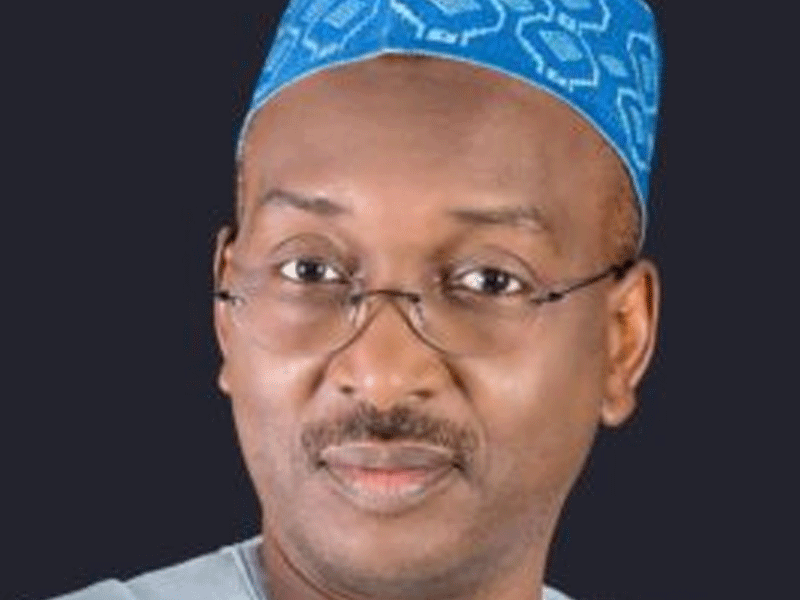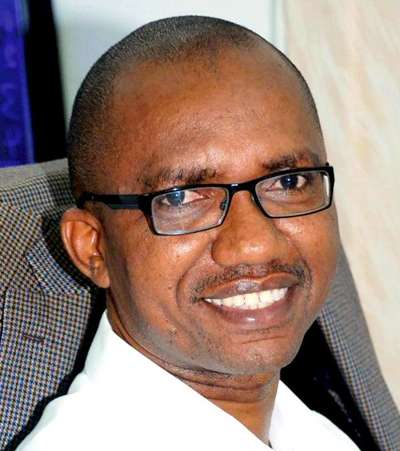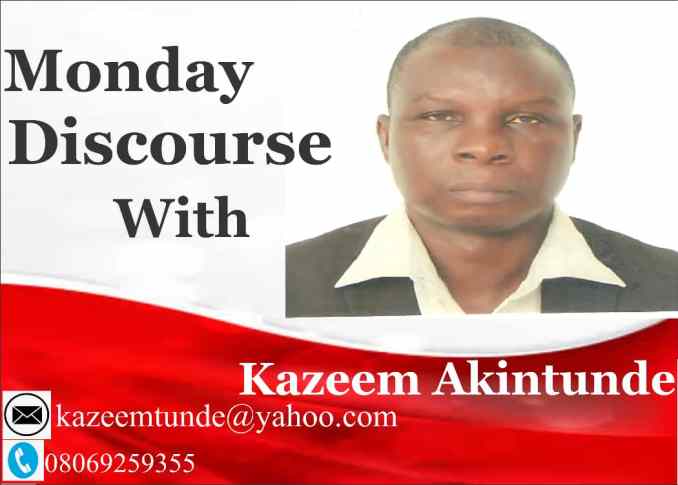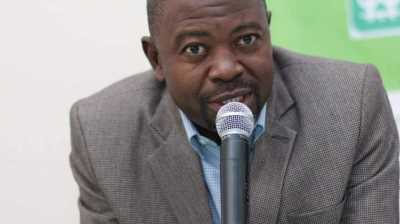Electoral Contests and Public Expectations: Matching Hopes with Realities,By Salihu Moh. Lukman
As Nigerians move closer to February 25, 2023, which is the day when the nation will go to polls to elect President and National Assembly members, the public debate is all about possible winners and losers. Understandably, most Nigerians are obsessed with the issue of proving that their preferred candidates will win the elections. Unfortunately, too, the dominant approach in the debate is the old antagonistic disposition, which reduces electoral contests to a competition between the good and the bad. Consequently, Nigerians blindfold themselves into a game of wit, which overlooked the obvious limitations and shortcomings of chosen candidates. Candidates that are not chosen are damaged, if not criminalised. In the process, respect is completely lost.
Perhaps, it can be argued, this is the global reality. However, there is the need to elevate electoral contests beyond the game of wit. Once electoral contests are reduced to game of wit, prospects for democratic development risks being inhibited. I say this with all sense of responsibility and as a Nigerian who is passionate in the political progress of the country as a democratic nation. One of the problematic issues of reducing electoral contests to game of wit is that, by commission or omission, Nigerians tend to take for granted the hard earn successes that have been recorded over the years and throw up some fantasies around candidates who’s only commitment to democracy and political development of the country is limited to the extent that they are on the ballot for election.
The emergence of Asiwaju Tinubu as APC’s Presidential candidate is a product internal party contest. One of our prides today in APC is that after the Convention that produced Asiwaju Tinubu as our Presidential Candidate, none of the Aspirants who contested against him left the party. Instead, all of them are united behind him and are working for his victory. It may also be important to note that the emergence of Asiwaju Tinubu as APC’s Presidential candidate was the product of strong internal contest. There may be temptation to narrow the contest to the dynamics around the question of whether there will be an anointed aspirant who would have been crowned as the consensus candidate, which wouldn’t have been Asiwaju Tinubu.
The reality was that the contest for the choice of APC Presidential candidate started way back during the tenure of Comrade Adams Oshiomhole as National Chairman of the party. At that time, the issues confronting the party was that of broadening the internal democratic space within the party. Issues of accountability of party leaders under the Oshiomhole-led National Working Committee (NWC) to members were the challenges. Meetings of organs of the party such as National Executive Committee (NEC), National Caucus and Board of Trustees were the key challenge. At that time in 2019, there were attempts to suggest that many of us raising these issues were doing so because we were opposed to the emergence of Asiwaju Tinubu as the Presidential candidate of the party.
Thanks to President Muhammadu Buhari’s unbiased disposition, eventually, Comrade Oshiomhole-led NWC was dissolved and a Caretaker Committee under the leadership of His Excellency Mai Mala was appointed, with a short mandate of six months. At the time of the appointment of His Excellency Mai Mala-led Caretaker Committee on June 25, 2020, the expectation was that a new NWC for the party would emerged early in 2021 long before the contest for the emergence of candidates for 2023 elections commences. Interestingly, His Excellency Mai Mala-led Caretaker Committee manipulated its mandate and began to sit-tight into the leadership of the party. It took strong internal contest against His Excellency Mai Mala-led Caretaker Committee to get it to organise the March 28, 2022 National Convention that elected the current Sen. Abdullahi Adamu-led NWC.
Of course, by the time of the March 28, 2022 National Convention, already Presidential Aspirants have emerged. Many of them had their preferred candidates for the position of National Chairman. Some of the Presidential Aspirants were able to expand their lobbies to some of the influential people around the President and perhaps succeeded to convince President Buhari to nominate Sen. Abdullahi Adamu for the position of National Chairman. And shortly after the election of Sen. Abdullahi Adamu as the National Chairman of the APC, negotiation for the emergence of a so-called consensus presidential candidate was activated.
It may also be important to remind Nigerians that the scheming around emergence of a so-called consensus candidate was ridiculously stretched beyond the APC to include people like former President Goodluck Jonathan and Mr. Godwin Emefiele, the Governor of Central Bank of Nigeria. These were never members of the APC. But with the active collaboration of some influential people outside the APC such as Chief Nduka Ogbaigbena, publisher and owner of Thisday Newspaper and Arise Television, some sophisticated mobilisation of so-called ‘hundred eminent businessmen, political, media and civil society leaders, including 14 current governors, 13 former governors as well as three former senate presidents’ commenced around April 2022. Gradually, this scheming shifted and was entrenched within APC. By May 2023, when the party began to sell its nomination forms to aspiring candidates, forms were purchased by some APC leaders for former President Goodluck Jonathan and Mr. Godwin Emefiele.
Eventually, when these schemers couldn’t succeed in popularising both former President Jonathan and Mr. Emefiele as possible contenders to emerge as consensus Presidential candidates for APC, the Senate President, Sen. Ahmed Lawan was recruited and promoted. It is on record that Sen. Abdullahi Adamu, on the eve of the Convention that elected Asiwaju Tinubu as the Presidential candidate of the party, announced to NWC members that Sen. Ahmed Lawan was the consensus presidential candidate of the party. Members of the NWC together with Progressive Governors rose against that move and again thanks to President Muhammadu Buhari, the contest for the Presidential candidate of APC was thrown open and Asiwaju won with a wide merging.
Part of the dummy that was promoted within the APC to attempt to popularise the choice of a Northerner, Sen. Ahmed Lawan as a consensus candidate was that since PDP had elected Alh. Atiku Abubakar, a Northerner as its Presidential Candidate, we needed to also elect a Northern so that we can win the votes of Northerners. This is completely inconsiderate of the popular agitation for power shift in the country. It is also insensitive of the potential instability that the choice of another Northerner emerging as President of the country could cause. Ahead of the APC National Convention, APC Governors from the North had already declared their opposition against a Northerner emerging as APC Presidential candidate.
Combinations of all of these in so many ways contributed towards tilting support of many APC leaders towards Asiwaju Tinubu. Certainly, Asiwaju Tinubu’s personal quality given his track records both as a businessman, politician, and elected Governor of Lagos State between 1999 and 2007 were also there. He has over the years proven himself as a fighter for democracy. This is one characteristic that has defined him and perhaps strengthen him to survive many personal attacks on his person and his integrity. The administration of former President Olusegun Obasanjo investigated him on many of the issues that are being used to smear his name such drugs. Renown radical lawyer and human rights activists, late Chief Gani Fawehinmi challenged his academic credentials unsuccessfully in courts. Many journalists and activists questioned his integrity but were not able to establish any proof.
Asiwaju Tinubu’s battles didn’t start in 1999 when he became Governor of Lagos State. Although both Asiwaju Tinubu and Alh. Atiku Abubakar could make claims to being members of late Shehu Musa Yar’Adua’s Popular Front and part of leaders of Social Democratic Party (SDP), which produced Chief M. K. O. Abiola as the 1993 Presidential Candidate, but Alh. Atiku vacate the political space for the military in 1993 when they annulled the election, which Chief Abiola won. On the other hand, Asiwaju Tinubu took the risk of joining the vanguard of the struggle against military rule. Both Mr. Peter Obi and Dr. Rabiu Musa Kwankwaso were never in the vanguard for the struggle against military rule.
As a fighter, Asiwaju Tinubu would appear to be a person with unshaken confidence and capacity to defend himself. Unlike many Nigerian politicians with short term agenda of winning elections, Asiwaju would seem to be looking beyond elections, which may be responsible for why he was not in a hurry to put himself on the ballot since 2007 when he left office as a Governor of Lagos State. Arguably, he is about the only politician that has consistently invested in politicians without being a candidate. His contribution to the merger negotiations that produced the APC as a political party was significant. His passion and commitment to the growth of APC as a progressive party and development of Nigerian democracy is very clear.
This has certainly earned him some strong opposition both within and outside APC. Both the PDP and all the other opposition parties including the Labour Party and NNPP knows that Asiwaju Tinubu is the main Presidential candidate to beat. Of course, there are forces within the APC that are also not comfortable with the possibility that Asiwaju Tinubu will be the next President of the Federal Republic of Nigeria. Schemers that failed to produce neither Mr. Emefiele or former President Jonathan or Sen. Ahmed Lawan as consensus candidate of APC have unleashed Mr. Emefiele’s so-called cashless policy to damage the APC and the candidature of Asiwaju Tinubu. But like they failed in the case of consensus presidential candidate, they are also failing in their intrigues to damage the APC and the candidature of Asiwaju Tinubu. Like Asiwaju Tinubu emerged as the Presidential candidate of APC despite their machinations, Asiwaju Tinubu will also become elected as President of the Federal Republic of Nigeria, God willing.
As members of APC, we must remain resolute and focused on our commitment to develop our party and our democracy. We must remain focused to return our party APC to its founding vision. We must remind Nigerians that the back born of every democracy is the existence of strong political parties. So far, Nigerian democracy be strengthened to produces accountable political leaders. Sadly, Nigerians, in their frustrations tend to want to submit themselves to power greedy political leaders whose main value is only limited to contesting elections with hardly any commitment to party that present them as candidates. This is responsible for why most of these politically greedy politicians contest on different political parties every election. In fact, they are serial aspirants and contestants for elective positions.
Those of us who have been in the vanguard for struggle for the development of Nigerian democracy must seek to shift the debate to the business of building political parties to emerge as truly democratic and accountable institutions. In addition to all the current initiatives to review progress and challenges facing the APC, for instance, we need to also highlight the issue of re-organising the APC immediately after elections. We must regulate the approach whereby immediately after elections, attention shift to the lobby of who gets appointed into government. Fundamental as that would appear to be, if not managed very well, it may also lead to the further weakening of the party.
Part of the first issue that should be immediately corrected is the restoration of life to all party organs. A situation whereby key decisions of the party are taken without recourse to formal organs should be corrected. The challenge of accountability also requires that structures of the party meet, and both elected and appointed representatives of the party should be answerable to the structures of the party. This is what party supremacy is about.
Democracy is beyond periodic elections; it is a daily affair. Since the formation of APC in 2013, the struggle to build the APC as a democratic, progressive and accountable institution has been a priority agenda. As it is often said, Rome is not built in a day. Certainly, a lot of work is required to develop APC to the level of being the envisioned democratic, progressive and accountable party. Looking at the Nigerian political landscape and compared to all the other parties and candidates for the 2023 Presidential elections, APC’s and Asiwaju Tinubu’s record of commitment to Nigerian democracy, party building and capacity is unparalleled. As APC members, our support for Asiwaju is not just about electing a President of the Federal Republic of Nigeria, but also about electing a committed leader who will guide the APC to return to its founding vision.
Guiding the APC to return to its founding vision is a catalysig factor for party development and the growth of our democracy. Producing good accountable leaders can hardly be achieved without producing accountable political party institutions. Politicians with hardly any record of commitment and capacity to make sacrifices in defence of democracy outside participating in elections may not be capable of meeting any public expectation. Meeting public expectation is about being accountable, which is beyond elections. The candidature of Asiwaju Tinubu therefore is beyond the 2023 elections; it is about matching the hopes of Nigerians to develop our country and the reality of being faced with the challenge of building the foundational institution of every democracy, which is the political party. That is the founding vision of APC, it remains the pillar of every electoral contest in APC since 2015, and it shall remain so!
Salihu Moh. Lukman
All Progressives Congress
North-West Zonal Office
Kaduna




